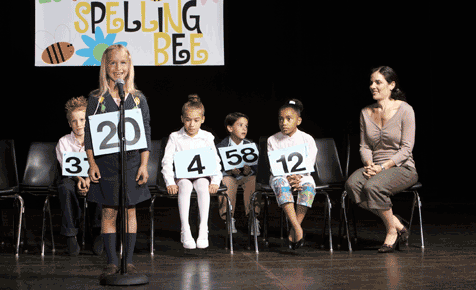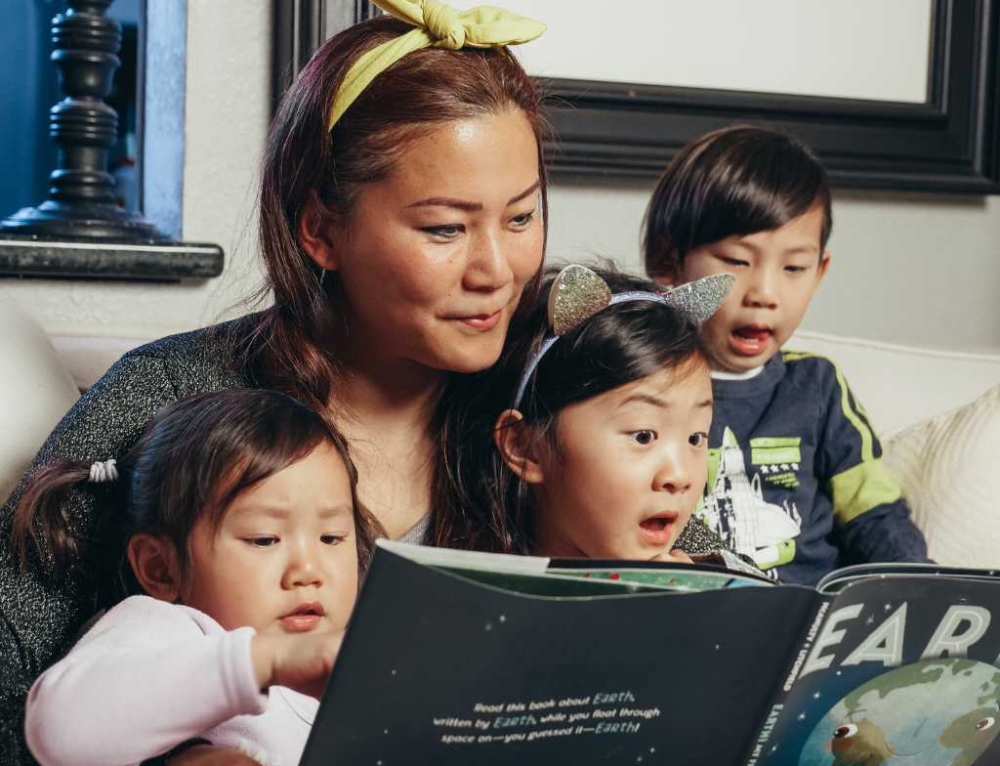If you’re looking for an exciting way to help your kids learn spelling and gather the family – or friends and neighbors — for some educational and entertaining together time, consider rallying the troops together for a home spelling bee.
A spelling bee is a contest in which participants are asked to spell words in a round-robin format, where each person gets a turn to spell a word that is suitable for his or her level.
In planning your home spelling bee, you’ll want to make sure that you keep things challenging, but not so difficult that your kids get discouraged. Remember, the name of the game is f-u-n!
Step-by-step spelling bee guidelines:
Gather participants
For a truly competitive oral spelling bee, you’ll want to select about eight to 10 participants, though more or fewer is fine.
Tip
Make sure participants don’t feel uncomfortable when singled out to spell in front of a group. If a participant is not comfortable taking the spotlight to spell, give them another job to do: Let them read off the words and use it in a sentence (we’ll call that person “the reader”) or perhaps act as a judge. Remember: kids will also learn spelling by reading the words, thinking up sentences, and following along to judge the correct spelling.
Read clearly and spell carefully
The reader should pronounce the word clearly and correctly as it is written, then use it in a sentence, then read the word again,clearly.
So if the word was, say, “orchestra,” the reader might say “Orchestra. String, brass, woodwind, and percussion instruments are all important parts of an orchestra. Orchestra.” Or if the word was “snowflakes,” the reader might say, “Snowflakes. I ran outside to catch snowflakes on my tongue. Snowflakes.”
The competitor would then say the word, spell the word, and say the word again: “Snowflakes. S-N-O-W-F-L-A-K-E-S. Snowflakes.”
Tip
Be sure to choose words that are suited to the level of the participants. You don’t want the words to be so easy that they’re not challenged or so difficult that they grow frustrated.
Move things along
If a competitor spells a word correctly, he or she remains inthe game, awaiting his or her next turn. If the competitor spells a word incorrectly, he or she is eliminated from competition and the next participant is given the same word to spell, continuing down the line until the word is spelled correctly.
Tip
Although traditionally a participant is eliminated from spelling bee competition as soon as his or she is unable to spell a word, for your home spelling bee, you may want to tinker with the formula a little. You may let a participant continue to compete until he or she misspells, say, five words. Or you might want to keep score and anoint the person who correctly spells the most words the winner, in order to let all the participants continue to play. Or you might give each person a one “pass”to use at some point during the game to trade in a word that stumps him for another word. Get creative with the rules in order to keep things comfortable and fun for participants.
Reinforce
Get a whiteboard or a big piece of cardboard to write each word on as it is spelled correctly. This will help participants to learn all the words in the competition, not just the ones they are asked to spell.
Repeat until you have your winner
If you’re playing by the traditional elimination rules, keep playing until only one participant is still standing. Then have everyone applaud the winner and let the winner take a bow.
Don’t be afraid to mix things up
You can also have a non-competitive spelling bee in which participants are asked to write words as they are dictated. Participants can work individually or in a group, discussing and working together to decide on the correct spelling of a word. Again, write the words down on a dry-erase board,chalkboard, or poster board as they are spelled correctly in order to reinforcelearning.
Or you may want to hold a themed spelling bee, using words from newspapers and magazines for a “current-events bee,” from the sports section for a “sports bee,” or from a cookbook for a “cuisine bee.”
Step it up
Whether you are holding an oral spelling competition or a non-competitive written spelling bee, take a gradual approach. Begin with easy word sand progress to more difficult ones.
Talk about it
After the spelling bee is over, talk things over with participants.Ask them what was most difficult and what was easy. This will give you a chance to reinforce key spelling concepts and introduce helpful ways to approach spelling.
This article was written by Amy Reiter for Kidspot, New Zealand’s leading resource for parents about education.







Leave A Comment
You must be logged in to post a comment.